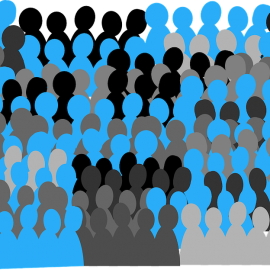

This article is an excerpt from the Shortform book guide to "The Bullet Journal Method" by Ryder Carroll. Shortform has the world's best summaries and analyses of books you should be reading.
Like this article? Sign up for a free trial here .
How does technology hinder, rather than help, productivity? What other negative effects does technology have on people’s lives?
Most people think that technology and productivity go hand in hand. This is most likely because there are numerous apps and programs out there designed to help you be more productive, fight procrastination, stay on schedule, etc. However, Ryder Carroll, the author of The Bullet Journal Method, says that technology is actually doing the opposite.
Here’s how technology is holding us back.
The Effect of Technology on Productivity
According to Ryder Carroll, despite living in a society that glorifies technology and productivity, research has shown that we’ve become less productive with the rise of technology. This is because although technology has revolutionized the way we live in countless ways, it has also overloaded us with information, resources, and connections. With so many things fighting for our attention, we can’t possibly focus on all of them. As our attention scatters, our productivity plummets.
(Shortform note: Carroll doesn’t explore why we’re unable to focus on so many things at once, but research suggests it may be because the brain only has two hemispheres available to manage tasks. Therefore, it can only focus on two things at the same time, making juggling more than two responsibilities an impossibility.)
Technology has also taken a toll on our ease of living. Carroll acknowledges that technology has brought us a variety of tools that simplify our daily lives. However, this infinite set of options causes decision fatigue; instead of focusing our attention on what matters to us, we waste time and energy on trivial choices. Carroll argues that despite the endless access to information that technology gives us, unlimited access comes at a cost: We feel perpetually distracted and overwhelmed. Studies show that the average American spends almost half of their waking hours in front of their screens.
Moreover, Carroll points out that even though technology has allowed us to connect with family members, friends, and others across the globe, maintaining all of these relationships requires time and energy; we become glued to our devices and social media accounts in an effort to keep up.
In short, despite our efforts to complete our task lists and accomplish our goals, our overreliance on technology makes us feel overwhelmed and stuck in a perpetual state of “busy” that doesn’t actually move us forward.
(Shortform note: Technology inhibits productivity in several ways that Carroll doesn’t cover. For example, receiving notifications interrupts our workflow and makes it difficult to re-enter a state of concentration. We also sometimes waste valuable time trying to complete tasks in the most technologically efficient way—for example, you may spend hours trying to automate a spreadsheet instead of just filling it out by hand.)
| Technology Affects More Than Productivity While Carroll’s observations about the effect of technology focus specifically on productivity, there are additional consequences of its omnipresence that he doesn’t cover. First, because technology has made life easier, we’ve forgotten how to do things that we once considered basic and essential. For example, thanks to autocorrect tools on computers and cell phones, many people have forgotten how to spell common words. In addition, digital contact lists have practically eliminated the need to remember phone numbers. In addition, our screen-time habits are negatively impacting our brains in a variety of ways. For instance, according to the Harvard Medical School, every time we interact with our screens rather than reality, our brains miss out on important stimulation that they normally receive from the world around us. Moreover, when we use our digital devices before going to sleep, the blue light they emit disrupts our sleep patterns and reduces the amount of deep REM sleep we experience, which negatively affects our memory and mental processing. Finally, despite spending a lot of time connecting on social media, research shows that people are feeling more alone than ever before. In particular, the data show that those who spend the most time on social media—people under the age of 35—feel the most lonely of all age groups. These examples show that the negative effects of technology extend beyond productivity into many areas of daily life. |

———End of Preview———
Like what you just read? Read the rest of the world's best book summary and analysis of Ryder Carroll's "The Bullet Journal Method" at Shortform .
Here's what you'll find in our full The Bullet Journal Method summary :
- A comprehensive guide to using the Bullet Journal Method
- How to maintain a journaling practice that can improve your overall quality of life
- How to extend the method beyond productivity to a practice in mindfulness






